
15-12-2025 15:48
 Danny Newman
Danny Newman
Melanospora cf. lagenaria on old, rotting, fallen

15-12-2025 15:54
 Johan Boonefaes
Johan Boonefaes
Unknown anamorph found on the ground in coastal sa

15-12-2025 21:11
 Hardware Tony
Hardware Tony
Small clavate hairs, negative croziers and IKI bb

15-12-2025 07:09
 Danny Newman
Danny Newman
indet. Rutstroemiaceae sp. on unk. fallen leavesMc

15-12-2025 07:05
 Danny Newman
Danny Newman
Pseudosclerococcum golindoi (det: Zotto)near Cosb

15-12-2025 11:49
 Danny Newman
Danny Newman
ITS sequences from the following two collections B

15-12-2025 12:34
 Danny Newman
Danny Newman
indet. Rhytismataceae on oak leafnear Purchase Roa

09-12-2025 12:06
 Andgelo Mombert
Andgelo Mombert
Bonjour,Je recherche l'article concernant Hypobryo
 Bonsoir à tous,
Bonsoir à tous,La semaine dernière, j'ai trouvé cet asco ressemblant fort à un Peziza sur branche pourrie de noisetier (Corylus avellana).
a) asques octosporés, à spores unisériées, IKI-
b) spores elliptiques, remplies complètement de petites gutttules, lisses : 19-24x7-9
n.b. : certaines spores présentent un petit apicule à chaque extrémité (germination de spores secondaires ??)
c) paraphyses filiformes, septées, ramifiées, à contenu réfringent vers l'extrémité
Pas d'idée…
Bernard

Bernard

could you show us a photo of an ascus tip in IKI? This reminds me of Rutstr. alni from the alps.
Zotto

there are IKI- ascus tips in the third picture.
regards
Martin

I am unable to see that :-(
Zotto



Indeed the asci are IKI- but I will try again by putting more lugol and leaving perhaps a little more time in order to see a possible change at the top of the asci
I doubt even though it is a Rutstroemia because I find that apothecia is not thick towards the base and the stem here is short and not thick like usual in this genus.
See you this evening.
Bernard

Could you please tell me the collection data? How sure is Corylus?

If I understand well, you tell me it's Rutroemia alni ?
Indeed, I dont 'have the description of this species. Is it a rare species ?
I am practically sure that the host is Corylus avellana but I will ask the opinion of others mycologists.
Then I'll give you dat collection.
Bernard

You can look at my alni folder. There is also a sample by Patrice from lowland. And Breitenbach's R. firma (153) seems to be alni too, and they say Corylus.
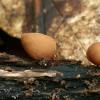
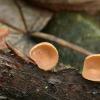
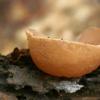
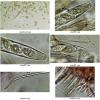
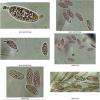
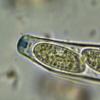
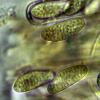
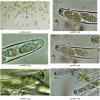
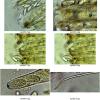
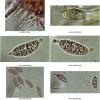
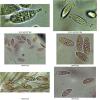
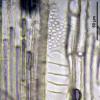
 Roffler-amp-Baral-2006-Rutstroemia-alni-1-0001.jpg
Roffler-amp-Baral-2006-Rutstroemia-alni-1-0001.jpg